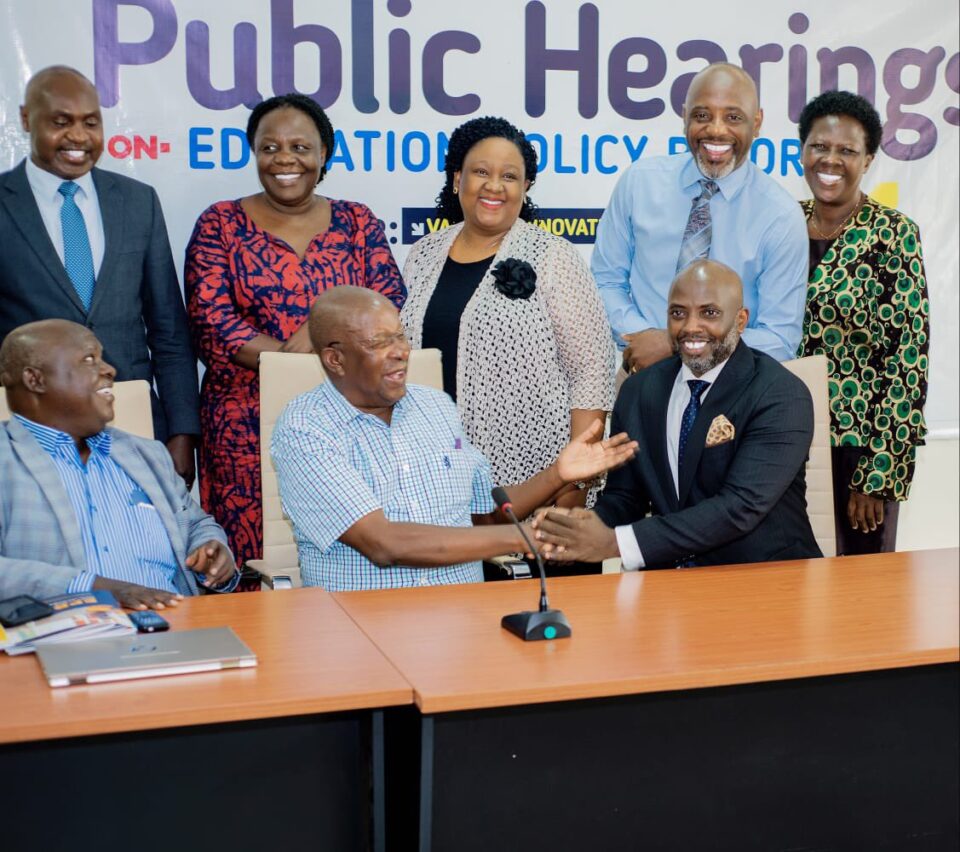By Frank Kamuntu
It’s good news for Ugandan learners who will soon be receiving an ‘education that matters’ after the Education Policy Review Commission (EPRC) enthusiastically embraced the proposals Prof Lawrence Muganga has been preaching in his campaign against what he calls an ‘ancient and outdated’ academic system.
Muganga, an academic pundit serving at Victoria University as the Vice Chancellor, has for long been calling for an overhaul of the Ugandan academic system, saying if the country is to prosper, it should be offering an innovative education that corresponds to the realities of the modern era.
What Are Prof: Muganga’s Proposals?
At The Primary & Secondary Level;
1) Transforming the Uganda National Examination Board (UNEB) into a focused entity named READ (Research, Evaluation, Assessment & Development).
2) Establishing School Districts across Uganda, grouped by socio-economic characteristics, for a more targeted educational approach.
3) Housing a District Evaluation Board (DEB) in each School District, responsible for all assessment needs within that district.
4) Replacing National Examinations like PLE and UCE with Continuous Assessments (CA), administered by the DEB, for a holistic evaluation of student progress.
5) Introducing School Transition Certificates (STC) for students completing P7 & S4, marking significant educational milestones.
6) Managing the Senior Six (S6) Examination by the DEBs, with assessments comprising 50% from Continuous Assessments (CAs) and 50% from final exams.
7) Integrating Artificial Intelligence and Emerging Technologies as a mandatory subject at all levels, preparing students for the future.
8) Emphasizing Patriotism, Community, and Environmental Responsiveness as essential subjects for all students.
9) Elevating the status of Teachers to be among the top 3 Essential Workers in Uganda, with commensurate rewards and recognition.
At The Higher Education Level;
Restructuring University Academic Models Around Four Pillars: New Emerging Technologies, Competency-Based Education, Co-operative Education, and Entrepreneurship Education.
Muganga says this approach ensures that Uganda’s higher education remains at the cutting edge of innovation, relevance, and quality. ”This goes beyond a policy overhaul; it’s a call to action for an educational renaissance in Uganda. Our country stands on the brink of an exciting new era, where education is not just a system but a journey of endless possibilities and innovations,” says Muganga.
Muganga now says if EPRC fully implements the proposals, Uganda will be positioned as a leader in a decolonized and transformative education system, surpassing other nations in their developmental journey.
”This crucial moment presents a historic opportunity for Uganda to redefine its educational landscape, and I take huge pride in the progress made by the Commission. Our shared vision for a brighter future and a transformative education system is now in the hands of this esteemed body,” says Prof Muganga.
He thanked members of the EPRC headed by Hon Amanya Mushega, for valuing his contribution to reshaping Uganda’s education.
”To the esteemed Education Policy Review Commission members, especially Hon. Amanya Mushega and Dr.Joseph Muvawala, my wholehearted appreciation extends for the vital opportunity to contribute to reshaping Uganda’s education. The shared agreement on various aspects highlights the collaborative spirit driving these proposals. Your dedication and support, alongside the entire commission, are pivotal in crafting a brighter future for Uganda’s education system. Together, we can make history,” noted Muganga.
The Members Of EPRC Are;
- Hon. Col. (Rtd.) Amanya Mushega
- Dr. Joseph Muvawala
- Hon. Eng. John Nasasira
- Mrs. Monica Monge
- Dr. Jacklyn Makaaru Arinaitwe
- Mrs. Irene Rusoke
- Dr. Prosperous Kavuma
- Prof. David Kabasa
- Mr. Brighton Barugahare
- Dr. Yusuf Nsubuga
- Mr. Clarence Olongamuri
- Dr. Kedrace Turyagyenda.


